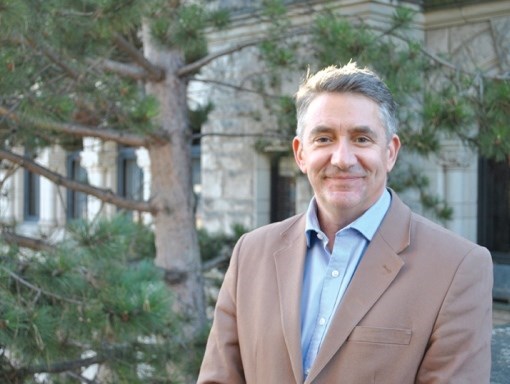The following interview with BC minister of social development and poverty reduction and Powell River-Sunshine Coast MLA Nicholas Simons was conducted on March 16, 2021.
Peak: What are your thoughts regarding Tla’amin Nation’s concerns about the Emmonds Beach development, and the alleged desecration of the sacred archaeological site?
Simons: I’ve spoken to senior officials in the premier’s office, not just about what appear to be major contraventions of the Heritage Conservation Act at Emmonds Beach, but as well on the Sechelt Inlet. Within three weeks of each other there have been two alleged [disturbances]. There are investigations underway. I’ve spoken to (shíshálh Nation) chief (Henry Warren) Paull at Sechelt expressing my sadness, and I’ve spoken to some of his administrative people who assure me they’re making sure the investigation continues.
Up in Emmonds Beach there was apparently a stop work order issued, and further steps are going to be taken. It saddens me and it makes me think about the need to see where legislation and enforcement might need to be altered or changed. The premier has been made aware of the situation. It can’t be left to stand. We need to do whatever we have to do to ensure the heritage of Indigneous communities is protected.
Peak: What are your thoughts on the local petition calling for public transit connecting Powell River to the Lower Mainland?
Simons: The problem is we know that businesses aren’t currently able to make a business case for it, or they weren’t in 2019. It seemed to be that the private operator was struggling. In my view, I’m looking at other opportunities for the community to potentially seek out. At least I think we need to do a feasibility study.
There are irons in the fire, but it’s too early to express any particular optimism. I don’t like to give people false hope but it’s an issue I’m concerned about because people in Powell River need to be able to get to Vancouver. If they don’t have a car, it’s very challenging.
Peak: You must have been pleased to hear that Paper Excellence recently announced plans to reopen the mill on or around May 1?
Simons: I’m glad people will be going back to work who’ve been off work for quite some time, and that product development continues. I was aware that the province was in discussions with the owners and that the right people were in touch with each other in terms of what was needed, and I hope the province was helpful.
Peak: You just announced that the seniors’ supplement will increase by $50 and income and disability assistance will be increasing by $175 per month, but advocates had asked that the $300 per month that people on disability and income support received through the pandemic supplement be restored and made permanent. How did your ministry arrive at the $175 per month figure?
Simons: The COVID supplement was an emergency response to the situation people found themselves in. For the nine months it was in place it was a welcome assistance to people on income and disability assistance.
Government has to make decisions on a lot of programs and services and funding, and the $175 is ultimately what the decision of government was, and I’m really pleased that it’s the largest single increase in the history of the province, and it adds to the $150 our government introduced in 2017 and then 2019. We continue to find other ways of reducing poverty, it’s not just income assistance.
Peak: The $300 per month was introduced during an exceptional time, the peak of the pandemic, but is your ministry suggesting things are now less difficult for people on disability and income support compared to this time last year?
Simons: I would say we are in a situation where we have a better idea of what the next few months look like better than we did in March 2020. The temporary supplement, and it was always temporary, was supposed to be a three-month program, but it was extended to nine months, and so on balance, my thought is we need to provide some permanency, we need to provide some predictability to families on assistance, and we needed to make an increase permanent, and $175 a month was the number that we landed on. Ultimately we’re finding numerous different paths to reducing the effects of poverty.
Peak: The budget is coming up for April 21. What are you expecting to see come out of that?
Simons: I can say with certainty that our goal is to continue to provide supports for people and businesses and communities to recover with some resilience through the next and hopefully last phase of the pandemic. Protecting the health of people is obviously the most important thing.
Peak: What are some legislative priorities you’ll be focused on in the coming months?
Simons: An important piece of legislation that I’ll be tabling this spring is accessibility legislation. It’s called an enabling legislation; it sets out the parameters by which companies, communities, businesses and the public sector are to set forth standards for accessibility, whether it’s transportation, built environment, communications, human resources. It’s been a long consultation process since before my time as the minister. The legislation will be guided by the [United Nations] Convention on the Rights of Persons with Disabilities, and the principle of nothing about us without us.



